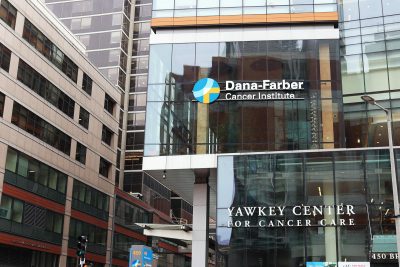Health insurance in the United States has been a prominent topic of debate for many years. Some believe the country should adopt a universal health care system — where all needed health costs are accessible without financial burden — while others favor private health insurance.

Medicare, a tax-funded government health insurance program, currently provides coverage for citizens 65 and older. Many progressive Americans want to expand the assistance to those outside of the age bracket, advocating for “Medicare for All.”
Although universal health care may seem attractive to many, is it feasible?
Boston University School of Public Health hosted an online event titled “Medicare for All: A Conversation,” Monday, seeking to answer this question and others like it. Speakers examined how Medicare for All would transform the way we give, receive and pay for health care in the United States.
The event hosted author Abdul El-Sayed, an activist, former city health commissioner and epidemiologist, to discuss his recent book “Medicare for All: A Citizen’s Guide.”
At the beginning of the event, El-Sayed, who is also a part-time CNN contributor, said there are important questions Americans should ask regarding Medicare for All, especially in the context of the pandemic.
“The first is why don’t we invest in population health in the ways that our science has demonstrated that we ought to?” El-Sayed said. “Why is it, in this country, that we spend 18% of our entire economy on health care, why is it that despite that, 10% of Americans still don’t have health care?”
His final question asked “what is the policy and politics” that can address the previous questions.
As a proponent of Medicare for All and with a public health background, El-Sayed said if the government adopted the system, they could reduce costs and better control prices, fixing the “broken” system he said many people are excluded from now.
“It’s a function of a system that is interconnected,” he said at the event, “that has monetized people’s bodies for the profits of large corporations.”
He said those corporations have entered political discourse for monetary benefit, which he said makes establishing a universal health care system challenging. That financial influence, he said, also puts pressure on the industries to make a profit, which has an impact on health care.
“The system benefits when people get sick,” he said. “That is a fundamental political economic truth of our health care system that stops us from really investing in prevention.”
El-Sayed also served as appointee for Sen. Bernie Sander, I-Vt., to President Joe Biden’s 2020 Unity Task Force for Healthcare in June of 2020.
He said he does not foresee the current Biden administration enacting Medicare for All during their time in office. However, he said much of the debate around the potential bill came before the pandemic. Post pandemic, especially given the economic toll, El-Sayed said he wonders if the current system could change.
Race and social class also play a significant role in health care, he added. On average, Black Americans are less likely to receive health care coverage than their white counterparts, in part contributing to significantly higher death tolls at the hands of COVID-19.
The pandemic has also had a disproportionate effect on low-income communities, who often work in person and live in higher-density spaces. If a family member falls ill, overwhelming health care bills and the absence of that income can also have a disastrous burden on families, El-Sayed said.
“I’m really interested in understanding what the economic consequences of lost people are in low-income families,” he said at the event, “because I just don’t think we’ve even looked at that.”
Event moderator Melissa Garrido, a research associate professor in the department of health law, policy and management at SPH, wrote in an email that the pandemic has exposed the faults of the current health care system.
“The pandemic has highlighted the negative consequences of linking health insurance coverage to employment,” she wrote.
When asked about Medicare for All, Garrido wrote that advocates must deal with the “current political realities” and seek small steps toward achieving accessibility in health care — simply because personalities with political clout, such as those in the pharmaceutical field, can support or resist proposals.
Carlo Taglietti, a first-year student in the BU School of Medicine, said he’s seen the difficulties the current health care system imposes on doctors.
“I was shadowing a surgical oncologist, and part of his job is to handle billing, and so he would figure out what does the patient’s insurance cover,” he said. “I don’t really think that’s something that you see in a lot of other health care systems, where doctors have to worry about what is being covered.”
Taglietti said he believes health care is a “fundamental truth,” and thinks Medicare for All would be a way to make U.S. health care more equal.
As an undergraduate, Taglietti said he took a class on the sociology of health care, and learned about the “social determinants of health” and possible preventions. He said he also volunteered with the organization “Health Leads” at the Boston Medical Center, which addresses the social health needs of individuals.
“A physician would do their whole treatment and then ask things like, ‘how’s your living situation, can you pay for food, can you pay for utilities?’” he said. “If they checked off any of these things, like they can’t pay for food or transport, then they would be referred to us.”
As far as other interventions, El-Sayed said scientific evidence suggests population health is much more concerned with the spaces people inhabit rather than “what happens in the clinic or hospital.” The future, he said, needs to focus on addressing inequities in those inhabited spaces.
“Those spaces ought to be the places where we situate the interventions that truly do drive population health,” he said at the event. “Health care is not a consumer good at all.”


























































































































